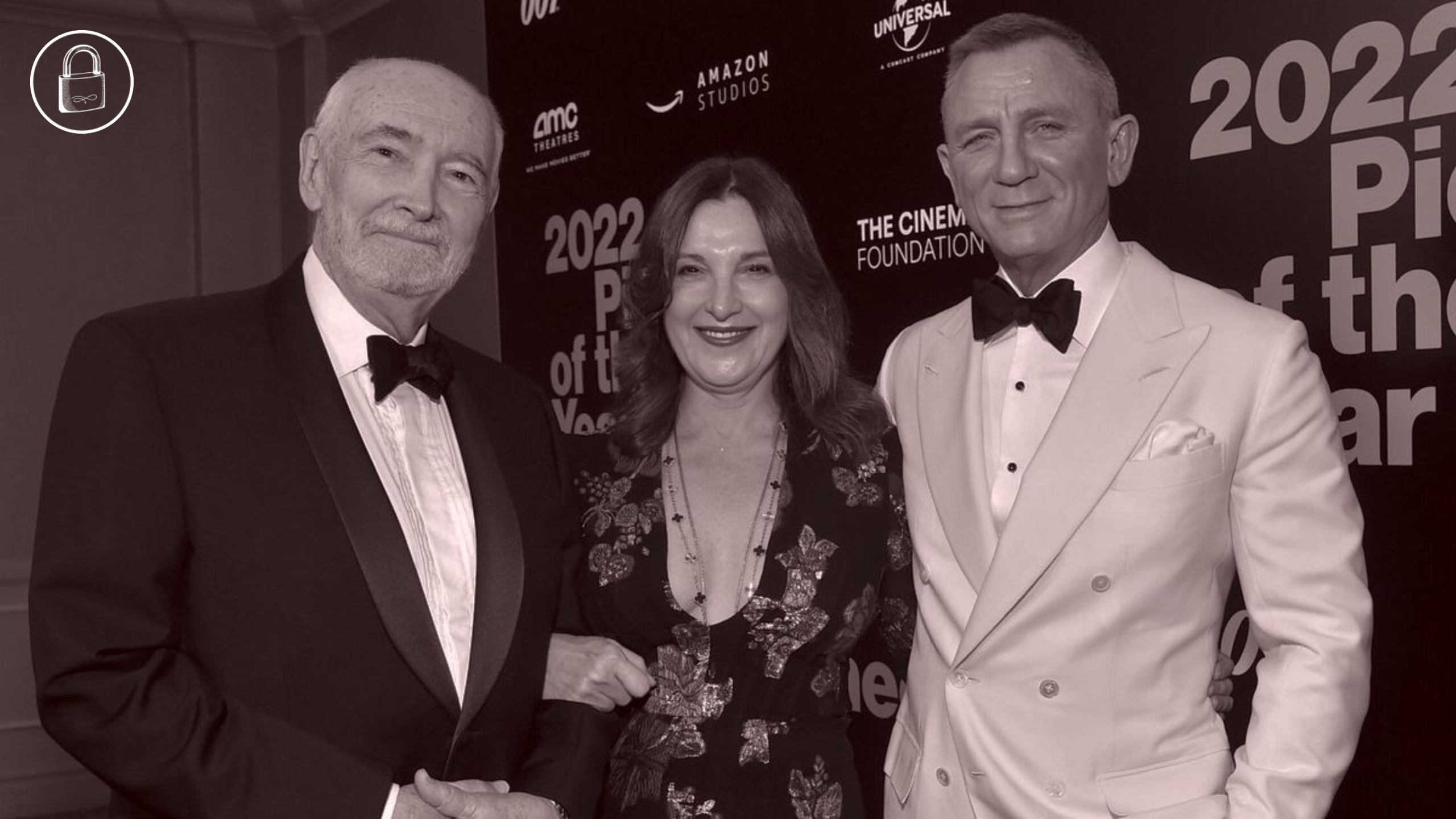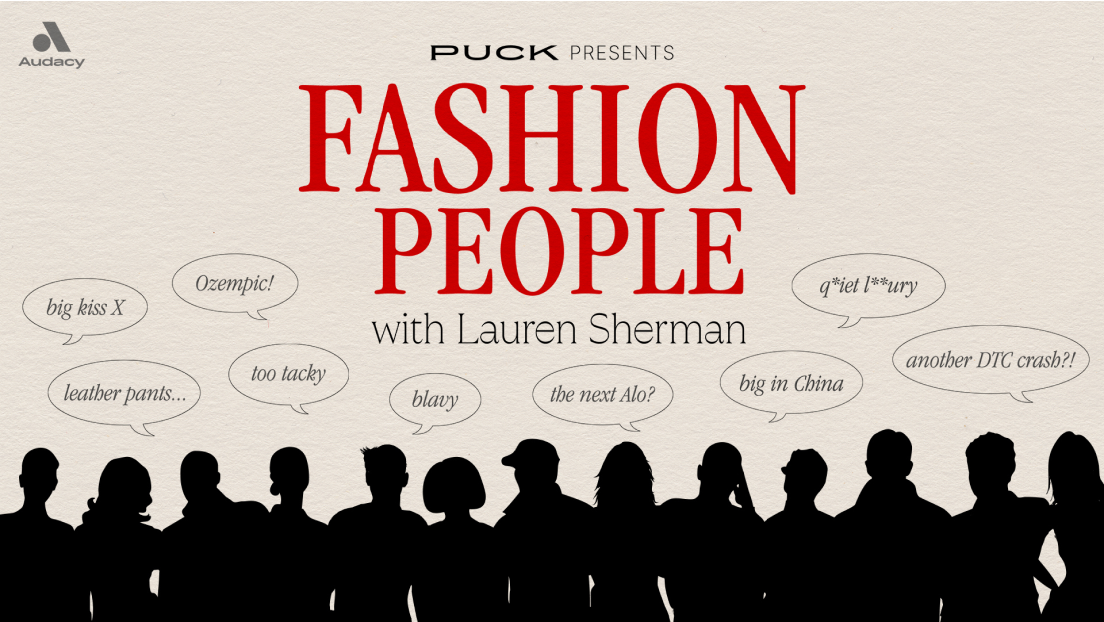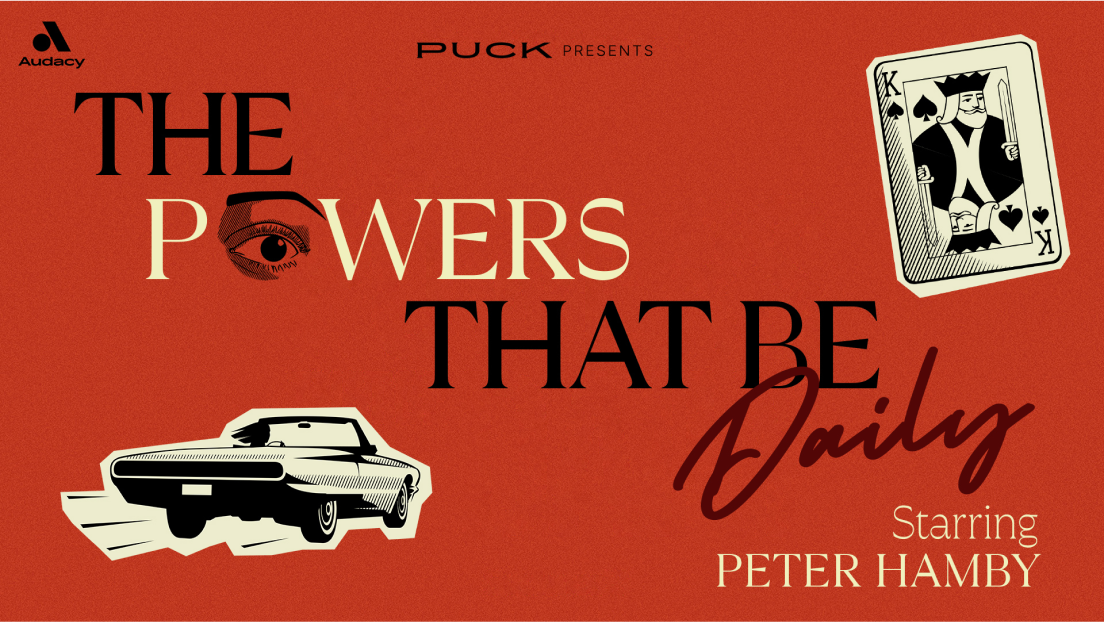
|
PREVIEW VERSION
|
|
|
|
White House Media Wars, NASCAR’s Loyalty Test, Brexit Fashion
|
Happy Friday and welcome back to The Daily Courant, your afternoon compilation of Puck’s
best new reporting.
Today, we lead with Matt Belloni’s behind-the-scenes look at Barbara Broccoli and Michael G. Wilson’s bombshell decision to surrender their sacred birthright—creative control over James Bond—to Amazon for a hefty, undisclosed price tag. What does the massive deal portend for cinema’s most enduring action hero, and the tech industry’s
relentless march on Hollywood?
Plus, below the fold: John Ourand evaluates the potential hangups in NASCAR’s new media rights deals. Tara Palmeri reveals how Trump buddy Steve Witkoff leapfrogged Marco Rubio to become the administration’s foreign policy dealmaker. And exclusively for Inner Circle members, Lauren
Sherman offers a clear-eyed analysis of the Saks Global vendor payment kerfuffle—and whether it might reshape the future of fashion retail in the U.S.
Meanwhile, on the pods: John Heilemann welcomes former U.S. attorney Preet Bharara on Impolitic to evaluate the pitched battle over Trump’s agenda in federal courts. On Fashion People, Lauren chats with designer Emilia Wickstead about building a
business in London post-Brexit. On The Grill Room, Dylan Byers connects with Eriq Gardner to break down the wave of MAGA-driven lawsuits targeting Trump’s media enemies. And on The Powers That Be, Ourand joins Peter Hamby to dig into the ESPN-MLB standoff.
|
|
|

|
Matthew Belloni
|
|
It’s hard to convey the shock around town after Barbara Broccoli and Michael G. Wilson sold their creative control
over James Bond to Amazon. In 2022, Amazon paid $8.5 billion for MGM, in no small part because of the studio’s contractual right to release Bond movies. But Broccoli herself famously hated the Amazon people almost from the get-go, and it always seemed clear that a productive relationship was never going to happen. And yet, years of failing to manage their talent created an opening for Jeff Bezos and Mike Hopkins, who saw an opportunity to throw
money at the problem. Now, the most enduring action hero in movie history has been swallowed by the algorithm. In retrospect, the solemn ending of No Time to Die looks like a message about the fate of the franchise—and about Hollywood, too.
Read
Now
|
|
|

|
John Ourand
|
|
For the past decade, NASCAR Cup Series races have been relatively easy to find: Fox carried the first half of the
season, and NBC carried the second. But a couple of years ago, as NASCAR executives started negotiating new media rights deals, they began spreading their schedule across as many platforms as possible. And NASCAR’s new, much sweeter rights deals kicked off with last weekend’s Daytona 500. The seven-year pacts are worth a total of $1.1 billion annually, up from about $800 million, and now involve five media companies—everyone from Amazon Prime to The CW—testing fans’ loyalty,
financial fitness, and scheduling awareness. After the grumbling stops, is it time to ask when enough is enough?
Read Now
|
|
|

|
Tara Palmeri
|
|
Earlier this week, when Secretary of State Marco Rubio sat down with his Russian counterparts in Saudi Arabia to
discuss ending the war in Ukraine, it didn’t escape anyone’s notice at the State Department that Steve Witkoff was also seated at the table. Witkoff, a billionaire real estate investor and longtime Trump pal, has gained extraordinary power over U.S. foreign policy since his anointment as “special envoy to the Middle East”—a title that understates the extent of his influence. “In terms of setting direction,” a State official told Tara, “Witkoff outranks Rubio.” Meanwhile, Republicans in Trump’s
orbit are keeping a close eye on the slumping favorability of Elon Musk. For Democrats calibrating how much to go after Trump directly as they try to win back Trump voters, Musk offers the type of soft target that they know how to attack.
Read Now
|
|
|

|
Lauren Sherman
|
|
Last Friday afternoon, Saks Global C.E.O. Marc Metrick sent a now-infamous memo to the company’s vendors, declaring
that brands will now be paid within 90 days of shipping products to Saks, Neiman Marcus, or Bergdorf Goodman—tripling the long-held 30-day window. Metrick insisted the memo was not a threat, but rather an excruciatingly necessary reorganization required to reset the business for the long term. Perhaps this new policy is a stern way of weeding out brands that aren’t great partners, but everyone is livid. Lauren observes that Metrick’s plan will work only if he and his team can persuade
the majority of brands to comply. Will they fall in line, or will vendors accept the revenue hit and exit Saks Global entirely?
Read Now
|
|
|

|
John Heilemann
|
|
John is joined by Preet Bharara, former U.S. attorney for the Southern District of New York and one of the most
prodigious federal prosecutors of the modern era, for the first of two back-to-back episodes on the battle playing out in the federal courts over Donald Trump’s agenda. Bharara explains why the velocity of Trump’s executive actions is testing the legal system in unprecedented ways; why Pam Bondi’s early moves to remake the D.O.J. are so ominous; and why the right’s claims that court rulings against Trump are tantamount to a judicial coup aren’t merely crazy or hyperbolic but actually
dangerous.
Listen Now
|
|
|

|
Lauren Sherman
|
|
For this special London Fashion Week edition of Fashion People, Lauren chats with designer Emilia Wickstead,
who is celebrating 10 years of runway shows. They discuss her childhood in New Zealand, moving to Milan at 14, what it’s like building a business in London post-Brexit, and designing for a certain customer in mind without letting outside noise distract you.
Listen Now
|
|
|

|
Dylan Byers
|
|
Eriq Gardner joins Dylan to dissect the wave of MAGA-driven lawsuits targeting Trump’s media adversaries. Eriq
highlights casino magnate Steve Wynn’s efforts to revive his 2018 defamation suit against the Associated Press, which he hopes is elevated to the Supreme Court, potentially setting the stage for a SCOTUS showdown that could challenge the landmark Times v. Sullivan ruling. The duo debate whether a better legal framework exists, and suggest ways for media organizations to navigate these shifting legal battlegrounds.
Listen Now
|
|
|

|
Peter Hamby
|

|
John Ourand
|
|
John Ourand joins Peter for a midterm review of the NBA season thus far, reflecting on the lousy All-Star Weekend and
diving deep into the business of the league. Then they switch gears to discuss the standoff between MLB and ESPN over the network’s broadcasting rights. Also, could Stephen A. Smith or Mark Cuban actually run for president?
Listen
Now
|
|
|
Need help? Review our FAQ page or contact us for assistance. For brand partnerships, email ads@puck.news.
You received this email because you signed up to receive emails from Puck, or as part of your Puck account associated with . To stop receiving this newsletter and/or manage all your email preferences, click here.
|
Puck is published by Heat Media LLC. 107 Greenwich St, New York, NY 10006
|
|
|
|



_01JMMXM1V96MGGSVQ2GH5EGBJ9.png)
_01JMMXM1ETRPKFWJMM3RNF1XSV.png)
_01JMMXM11TP0WCR6D1VDYBDJRJ.png)





















